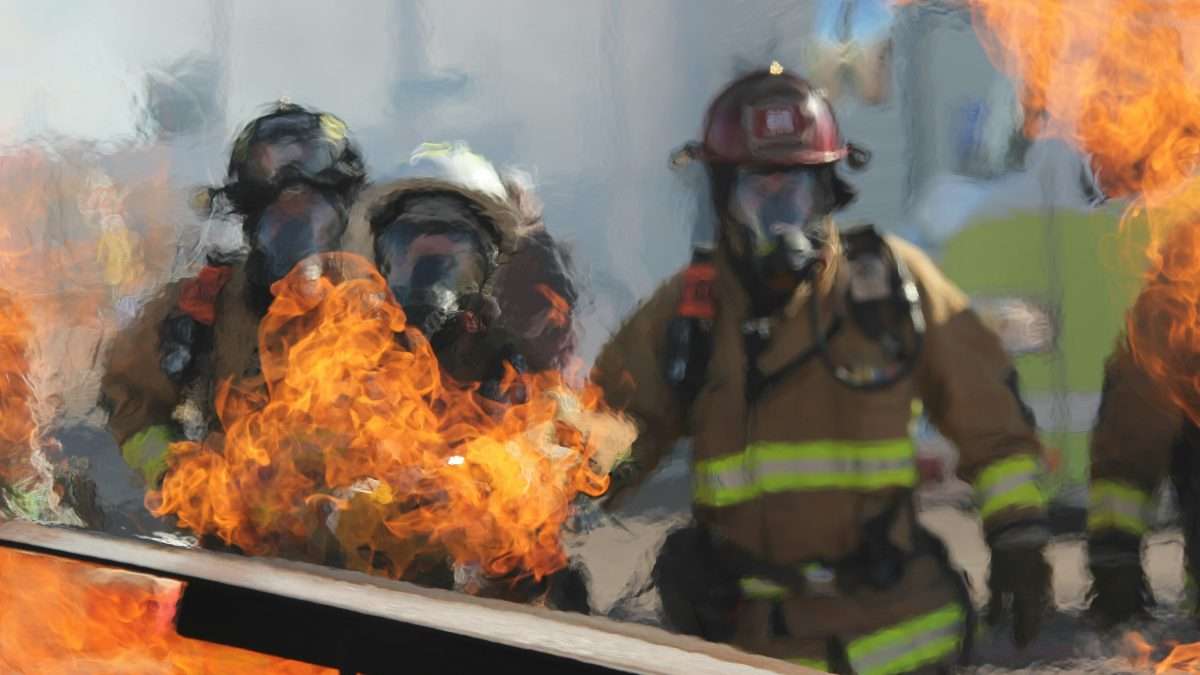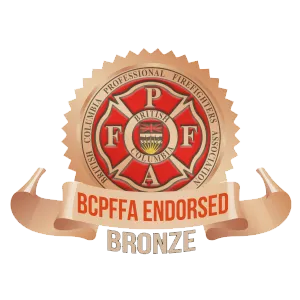First Responders: Occupational Health, Critical Stress and Wellbeing. An up-stream approach to creating healthy habits around self-care and early interventions.

Critical Stress and wellbeing in first responders has been broadly researched and scrutinised over the past few years. It is widely accepted that first responders are subjected to immense stress not only daily, but throughout the length of their service. In a recent article in the Washington Post (Klemko, 2022) being a Police Officer is described as the most dangerous job outside of military service. (Klemko, 2022)
Today, there is a growing concern regarding not just recruitment of first responders across all disciplines, but also retention. With approximately 18,000 law enforcement agencies across the U.S. over 75% reported that recruitment today is more difficult than it was five years ago. However, in order to attract individuals to explore careers as a first responder, we need to demonstrate that they will be valued and supported.
Now more than ever, police officers and First Responders across all disciplines need additional support not only when it comes to their general health and wellbeing, but also ways in which to help mitigate the impact of stress and long-term post-traumatic stress disorder (PTSD).
Fortunately, there are organisations in place that specifically help those struggling with anxiety and stress. Diversified Rehabilitation Group (Diversified), https://ptsdrecovery.ca located in Kelowna British Columbia, has been extremely successful in helping police officers and first responders. Furthermore, these organisations are now working together to expand on new programs and solutions that are gradually being introduced directly within their departments.
In 2022, British Columbia witnessed an alarming surge in approved psychological injury claims filed by firefighters through WorkSafeBC. The number of cases has escalated by an unprecedented 2000%, from 5 firefighters in 2015 to 96 in 2021. Moreover, the average cost per claim has risen substantially, reaching a projected $240,094 for 2022, compared to $103,698 in 2015. This surge translates to an annual cost of $40 million for psychological injury claims from BC firefighters alone, excluding those from police and other first responders.
Steve Farina, who is the Executive Vice President of the British Columbia Firefighters Association said: “Although we have been doing a lot of heavy lifting to try and reduce the stigma, encourage first responders to reach out for help and improve mental health benefits for first responders, more needs to be done. We need to get upstream and stop waiting for people to go over the waterfall before we help them. A prevention and early intervention approach will save lives and money.”
Steve is a strong advocate for focusing on optimizing performance and creating healthy habits around self-care, early intervention and stay-at-work solutions. As suggested, an upstream approach with education, awareness and seeking help with tool gathering prior to things becoming chronic or crisis is essential to change culture. We need to normalize “getting a check-up from the neck up” and/or “taking a knee” when the “check engine light” comes on, and not wait until an individual decompensates to a point where they are in the red and spiralling toward crisis. We also cannot understate the importance of adequate extended health benefits, and access to a team of “Occupationally Aware” health care providers, including psychologists, clinical counsellors, etc. Also having “Occupationally Aware” human resources and first responder leaders who have had training in dealing with mental health challenges in the workplace is critical in creating a psychologically safe workplace.
In response to this alarming trend, an online education program was created. The BC Fire Fighter Occupational Awareness Training program provides the necessary education from recruitment to retirement. Launched April 1st, 2023, this online program is available to all municipal firefighters throughout the province and all BC Wildfire Services staff as of March 1, 2024. Phase 2 of the program, which includes 12 new training modules, will launch June 1st, 2024. To date, more than 6,660 municipal firefighters have enrolled in the program. The first year of the program focused on helping firefighters understand mental health, learn how to manage stress and develop self-care strategies. It allows workers to watch a short video of 10-15 minutes from the series, followed by a guided crew discussion that is supported by a printable workbook. The videos and workbooks remain available online so firefighters who miss a session or join the department later can access these resources.
This program is administered by the BC Municipal Safety Association and First Responder Health and supported by the British Columbia Firefighters Association, Volunteer Firefighters’ Association of BC, BC Fire Training Officers Association and the Fire Chiefs’ Association of BC.
More info can be found here: (https://www.firstresponderhealth.org/bcffoat)
An important theme when supporting first responders is ensuring that programs are developed in collaboration with all stakeholders. They stand by the motto “nothing for us without us”. This ensures relatability, accurate and up to date content and buy-in from frontline staff. With this in mind, the BC First Responder Resiliency Program (FRRP) was designed in collaboration between Blueprint, UBC Faculty of Medicine, BC Professional
Firefighters Association, BC Police Association, and the Vancouver Police Union. The first pilot programs of the 3.5 day residential retreat began in 2017, and in 2021 November awarded the program a two year grant ($426k) towards clinical costs for 28 programs. To date, the BC Firefighter Resiliency Program has successfully completed 39 programs since its pilot in February 2017, involving 297 participants. The BC Police Resiliency Program, initiated in 2019, has completed 14 programs with 117 participants. Both programs have received positive feedback and have garnered support from various regions, including BC, Saskatoon, Halifax, and Winnipeg. This evidence-based program works to reduce claims cost and has consistently shown sustained clinical benefits 2 weeks and 6 months post-program delivery.
The FRRP helps first responders strengthen their resilience in the face of life-or-death environments. They are exposed to the impact of violence, crime, catastrophic accidents, disasters, and widespread public health crises. Over time, repeat exposure to these conditions wears down their abilities to cope and to care for others at work, at home and in the community; it affects their mental health. In fact, 44% meet the criteria for mental health disorders, 4 times the normal Canadian average.
By using clinical research and practice, the FRRP gives police and firefighters an avenue for recovery and growth that many of them desperately need. This is a “made in BC” program, created by first responders for first responders, for upstream implementation to enhance their psychological resilience through an intensive 34 hours of skill development. The program strengthens their domestic, organizational and
operational stress competence and capacity at any stage of their career.
More info can be found here on the program: https://sites.google.com/view/bcfrrp/home?pli=1
Although many first responders have historically been hesitant to seek professional help and support, suggesting such barriers as pervasive “negative” stigma, more and more are now able to overcome that and reach out for help. The mindset is changing across the rank and file from supervisors to new recruits. This has already started with a simple recognition of the word “disorder”, which suggests physical or mental problems being replaced with a more acceptable definition suggesting “injury” (PTSI). These are positive changes that can and will be reflected throughout the recruitment process.
Barack Obama once said, “No matter what we face, first responders always carry on with a sense of duty and courage that is remarkable.” Let us now provide them with the tools to be able to carry on!


